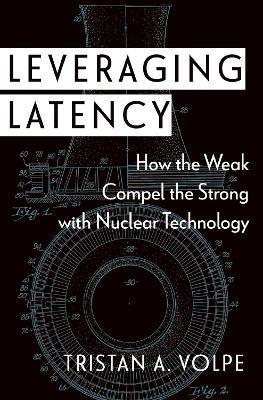Leveraging Latency: How the Weak Compel the Strong with Nuclear Technology

Leveraging Latency: How the Weak Compel the Strong with Nuclear Technology
Over the last seven decades, some states successfully leveraged the threat of acquiring atomic weapons to compel concessions from superpowers. For many others, however, this coercive gambit failed to work. When does nuclear latency--the technical capacity to build the bomb--enable states to pursue effective coercion? In Leveraging Latency, Tristan A. Volpe argues that having greater capacity to build weaponry doesn't translate to greater coercive advantage. Volpe finds that there is a trade-off between threatening proliferation and promising nuclear restraint. States need just enough bomb-making capacity to threaten proliferation, but not so much that it becomes too difficult for them to offer nonproliferation assurances. The boundaries of this sweet spot align with the capacity to produce the fissile material at the heart of an atomic weapon. To test this argument, Volpe includes comparative case studies of four countries that leveraged latency against superpowers: Japan, West Germany, North Korea, and Iran. In doing so, Volpe identifies a generalizable mechanism--the threat-assurance trade-off--that explains why more power often makes compellence less likely to work. This framework illuminates how technology shapes broader bargaining dynamics and helps to refine policy options for inhibiting the spread of nuclear weapons. As nuclear technology continues to cast a shadow over the global landscape, Leveraging Latency provides a systematic assessment of its coercive utility.
PRP: 222.04 Lei
Acesta este Prețul Recomandat de Producător. Prețul de vânzare al produsului este afișat mai jos.
199.84Lei
199.84Lei
222.04 LeiLivrare in 2-4 saptamani
Descrierea produsului
Over the last seven decades, some states successfully leveraged the threat of acquiring atomic weapons to compel concessions from superpowers. For many others, however, this coercive gambit failed to work. When does nuclear latency--the technical capacity to build the bomb--enable states to pursue effective coercion? In Leveraging Latency, Tristan A. Volpe argues that having greater capacity to build weaponry doesn't translate to greater coercive advantage. Volpe finds that there is a trade-off between threatening proliferation and promising nuclear restraint. States need just enough bomb-making capacity to threaten proliferation, but not so much that it becomes too difficult for them to offer nonproliferation assurances. The boundaries of this sweet spot align with the capacity to produce the fissile material at the heart of an atomic weapon. To test this argument, Volpe includes comparative case studies of four countries that leveraged latency against superpowers: Japan, West Germany, North Korea, and Iran. In doing so, Volpe identifies a generalizable mechanism--the threat-assurance trade-off--that explains why more power often makes compellence less likely to work. This framework illuminates how technology shapes broader bargaining dynamics and helps to refine policy options for inhibiting the spread of nuclear weapons. As nuclear technology continues to cast a shadow over the global landscape, Leveraging Latency provides a systematic assessment of its coercive utility.
Detaliile produsului











